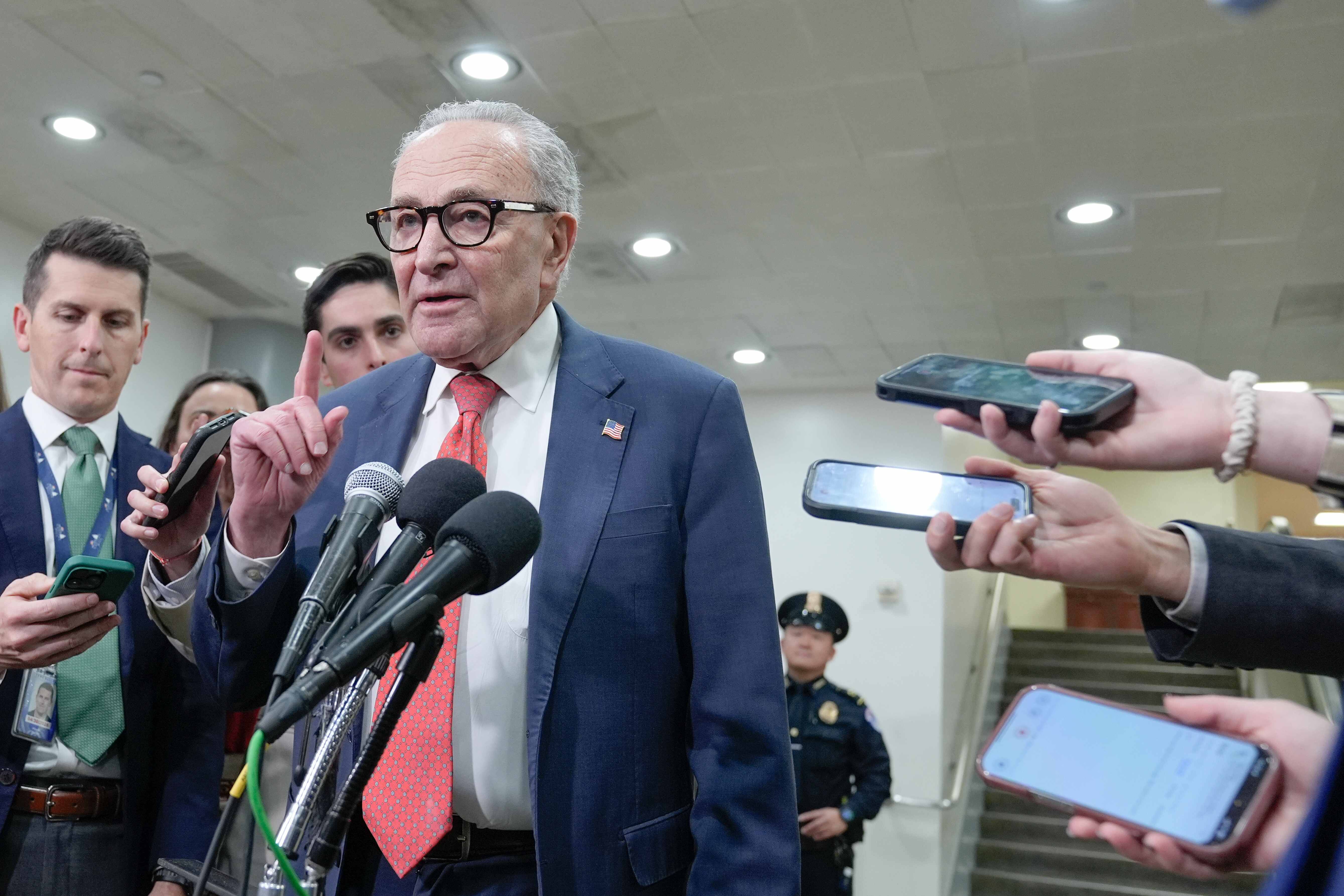Washington could be getting a shutdown for Christmas
This Christmas, the country could be stuck with a present that nobody wants and can't be re-gifted — a government shutdown.
President Trump is threatening to shut down the government if he doesn't get the $5 billion he wants for border wall funding, something he made clear in a contentious Oval Office meeting with Senate Minority Leader Chuck Schumer and presumptive incoming Speaker of the House Nancy Pelosi Tuesday. Mr. Trump said he would be "proud" to shut down the government for border security and declared he would take full responsibility for any shutdown.
The government will partially shut down after Dec. 21 — days before Christmas — if the House and Senate can't pass legislation to fund it, and if Mr. Trump doesn't sign any approved legislation.
So, why is a shutdown a possibility, how likely is a shutdown, and what would happen if it does shut down?
How did we get here?
Democrats and Republicans are primarily divided over how much to provide for border security funding. Democrats are offering no more than $1.6 billion, while the president is insisting on $5 billion — still not nearly enough to cover the full costs of the wall the president has long sought to build.
Appropriations funding for several departments has already been approved, but the spending bills for the Justice Department, Homeland Security and State Department, as well as a few others, have not yet made it through Congress.
Washington was approaching a possible shutdown after the death of former President George H.W. Bush, but Congress agreed to a two-week "continuing resolution" to fund the government at the same levels. The federal government has long been operating on short-term spending solutions, even though it's theoretically supposed to operate on year-to-year budgets.
This wouldn't be the first shutdown under Mr. Trump's watch. There have already been two brief government shutdowns during Mr. Trump's presidency — one over a weekend from Jan. 20 to Jan. 22, and one for nine hours on Feb. 9.
What happens if the government shuts down?
If a government shutdown occurs, so-called "essential services" would continue, and so would "mandatory" spending programs, like Social Security payments and Medicare. The armed forces would also continue their service, both on U.S. soil and abroad. And the U.S. Postal Service would still be operative.
National Parks may or may not stay open — that has varied in past shutdowns.
Hundreds of thousands of federal employees would be furloughed, and many government offices deemed non-essential would close.
The Congressional Research Service, Congress' research arm, updated its report on how a shutdown works on Monday.
How likely are Republicans and Democrats to avoid a shutdown?
Republicans on Capitol Hill are more reluctant to push for a shutdown than Mr. Trump is. Senate Majority Leader Mitch McConnell said he hopes Washington doesn't reach the point of needing a shutdown.
"Well, I hope that's not where we end up," McConnell told reporters after Mr. Trump's meeting with Schumer and Pelosi. "I understand it was a rather spirited meeting, we all watched. But I'd still like to see a smooth ending here. l haven't given up hope that that's what we will have."
Republicans and Democrats theoretically could pass another continuing resolution to fund the government at the same levels for a short period of time, but both parties want a longer-term solution.
House and Senate members like to be home for Christmas, like everyone else. But the future remains uncertain.
"I'm just sort of hoping for a Christmas miracle here," McConnell told reporters Tuesday.
Plus, Mr. Trump is slated to leave for Mar-a-Lago next week when government funding runs out. The optics of such a vacation during a government shutdown wouldn't be ideal for the president.



